“Reading is to the mind what exercise is to the body.” ― Joseph Addison
Let me start by apologizing for my absence. I haven’t been able to think clearly. The world is burning! How do I write about anything else? How do I write anything? I know many of you have been feeling the same way. No one prepared us for how to live in this hellscape. Fear and anxiety have distorted my perspective. I’ve only been able to focus on what I need, and what I need is grounding: soft, simple activities that help me stay present and are in my control.
When I feel powerless, I remind myself that I own my daily routine. It’s not all a choice, but how I react to it is. By leaning into the repetitive, mundane tasks that make up my days, I fully engage in the act (and art) of living. Reading children’s books helps, too. The children’s author, Katherine Rundell, writes in her impassioned essay, “Why You Should Read Children’s Books, Even Though You Are So Old and Wise”:
“Children’s books are specifically written to be read by a section of society without political or economic power. People who have no money, no vote, no control over capital or labour or the institutions of state; who navigate the world in their knowledge of their vulnerability… And because so many times in life, despite what we tell ourselves, adults are powerless too, we as adults must hasten to children’s books to be reminded of what we have left to us, whenever we need to start out all over again…
She emphasizes children’s books as a place for finding things, things we may not even know we’ve lost:
“When you read children’s books, you are given the space to read again as a child: to find your way back, back to the time when new discoveries came daily and when the world was colossal, before your imagination was trimmed and neatened, as if it were an optional extra. But imagination is not and never has been optional: it is at the heart of everything, the thing that allows us to experience the world from the perspective of others: the condition precedent of love itself.”
That last sentence is our society’s issue: imagination is treated as optional, not essential. Not only have we forgotten how to see the world from the perspectives of others, we’ve lost sight of it ourselves. In Joseph Addison's 18th-century essay, “The Pleasures of the Imagination,” he writes about the imagination’s power to improve society, arguing that when properly cultivated, the imagination can be a source of great pleasure and contentment, especially when derived from reading, art, and nature, allowing individuals to find joy and meaning in the world around them, even in difficult circumstances.
In tough times, I turn to Kuma-Kuma Chan, the Little Bear by Kazue Takahashi, a sensational picture book that calms me and my children down, and reminds us to cherish life’s simple pleasures; not that children need reminding; they’re naturally inclined to notice, appreciate, and be deeply connected to the wonders and aesthetic pleasures of their daily lives, but adults often get in the way by overscheduling them or sticking them in front of screens.
First published in Japan in 2001, then translated into English in 2014, the story imagines the small, unhurried moments that make up the little bear’s day.
It begins with a blank spread and simple text:
“My favorite little bear is Kuma-Kuma Chan. He lives in a small house deep in the mountains.”
We turn the following two pages and discover that despite Kuma-Kuma Chan being the narrator’s “favorite little bear,” they know little about him.
“His home is far away and difficult to get to.” / “I somtimes wonder what Kuma-Kuma Chan does during the day.”
And then we’re off, along with our narrator, imagining the daily life of little Kuma-Kuma Chan. He eats salad for breakfast, daydreams, dances, shops, writes letters, and listens to the rain. He pulls weeds in his garden in the spring, trims his hair to stay cool in the summer, writes and sings love songs in the fall, and reads in a warm, sunny spot on the floor in winter. At night, he watches the sky become completely dark, then carefully brushes his teeth and goes to bed.
Each spread includes text on the left and a soft, dreamy illustration on the right. Both are surrounded by ample white space, allowing children to insert their imaginations. Many of the scenes lend themselves to discussion (“I bet he daydreams while walking home.”/ “He wonders where to go with his new shoulder bag.”); however, they work just fine without it.
Tiny but expansive, the book abounds with possibilities, transporting us to a faraway place, through time—from morning until night—and across a year, as we imagine how Kuma-Kuma Chan chooses to live his days. And it turns out that his days look a lot like ours. Children can easily relate to Kuma-Kuma Chan’s awe and delight in everyday activities (“He trims the nails of his paws. Then he lines up the cut nails and gazes at them.”), and adults will feel inspired to reconnect with wonder. But the most remarkable thing about this book is that it—without a whiff of didacticism—cultivates compassion by inviting us to be curious about situations that are not our own.
A second book, Kuma-Kuma Chan’s Home, was published in English in 2016, followed by Kuma-Kuma Chan’s Travels in 2017. Both reinforce the little bear’s world with charm, relatability, and surprising humor, although neither is as compelling as the original.
(Even though I prefer the first book, I think about this section in Kuma-Kuma Chan’s Travels a lot. It’s breathtaking! See below.)
Reading this series, I find myself on the verge of tears. Kuma-Kuma Chan’s quiet contentment moves me. I’m inspired to focus on things beyond my anxious thoughts, like having a meal with a friend, dancing to music on the radio, or imagining what sound the stars make. I know this won’t always rescue me from chaos and grief, and there will still be days when only a nap will do. But I believe—most days, most of the time—in the power of the imagination, in stories, in art—and hope on those days, I will continue to find the courage to pull my chair up to my desk and write.








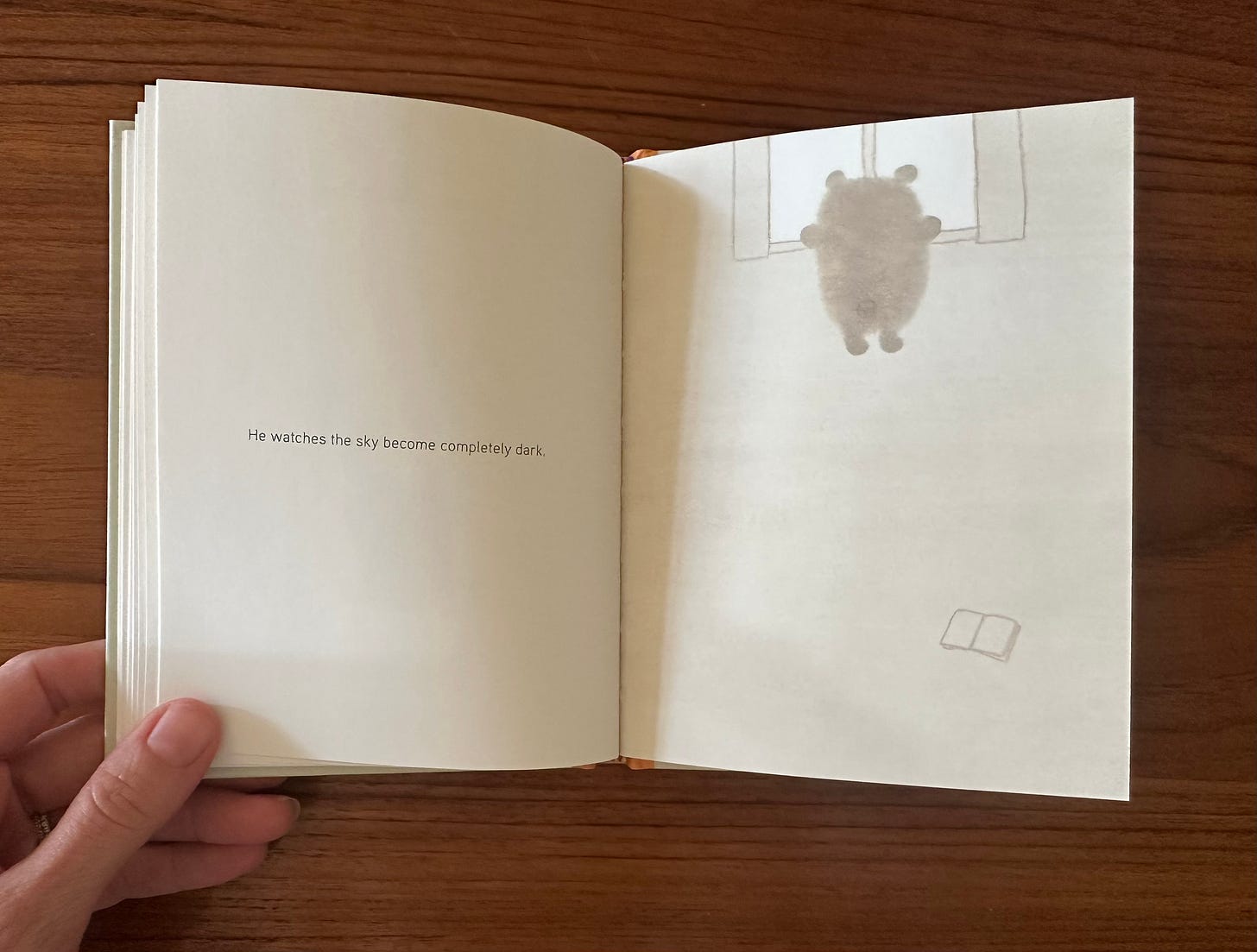
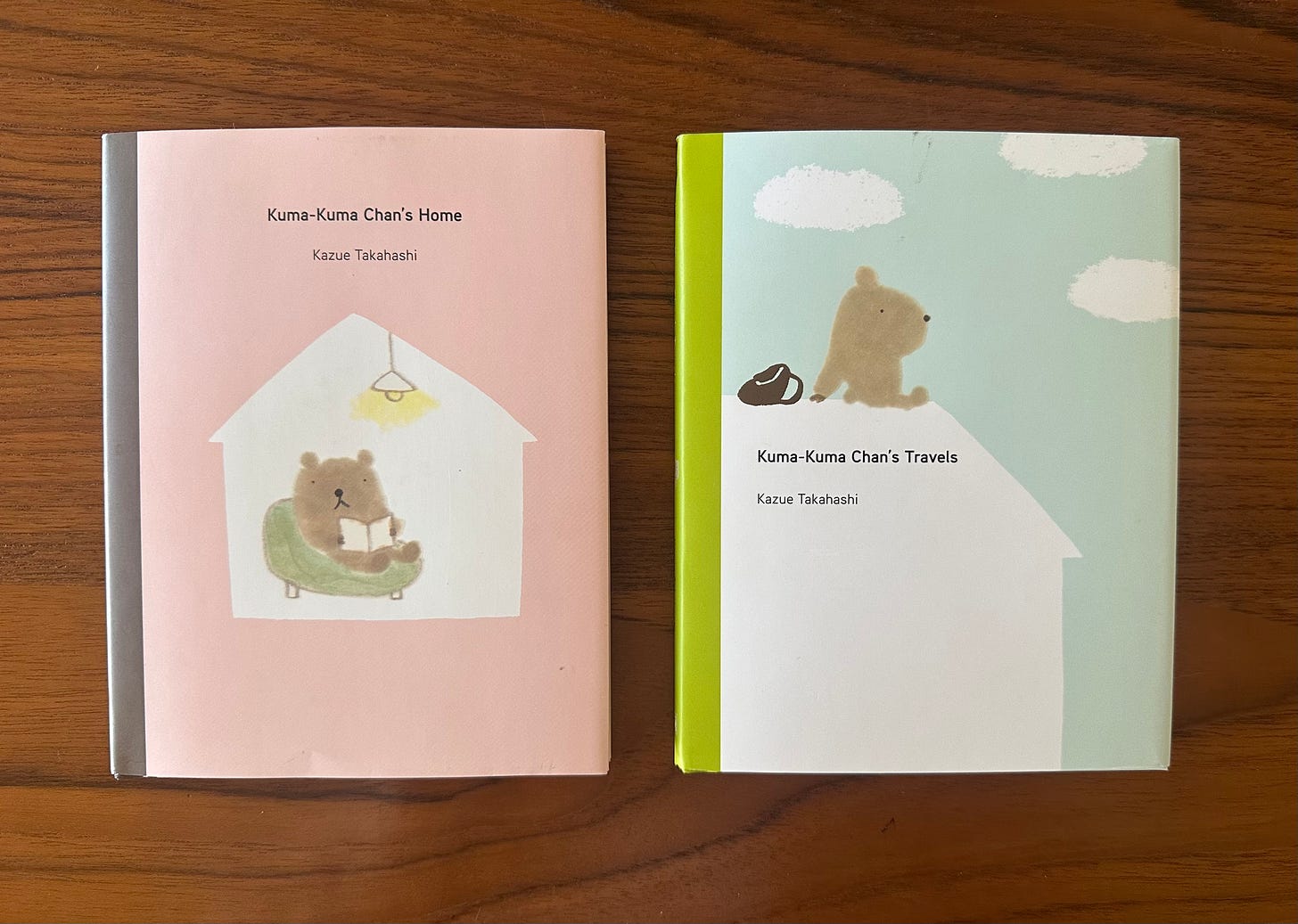
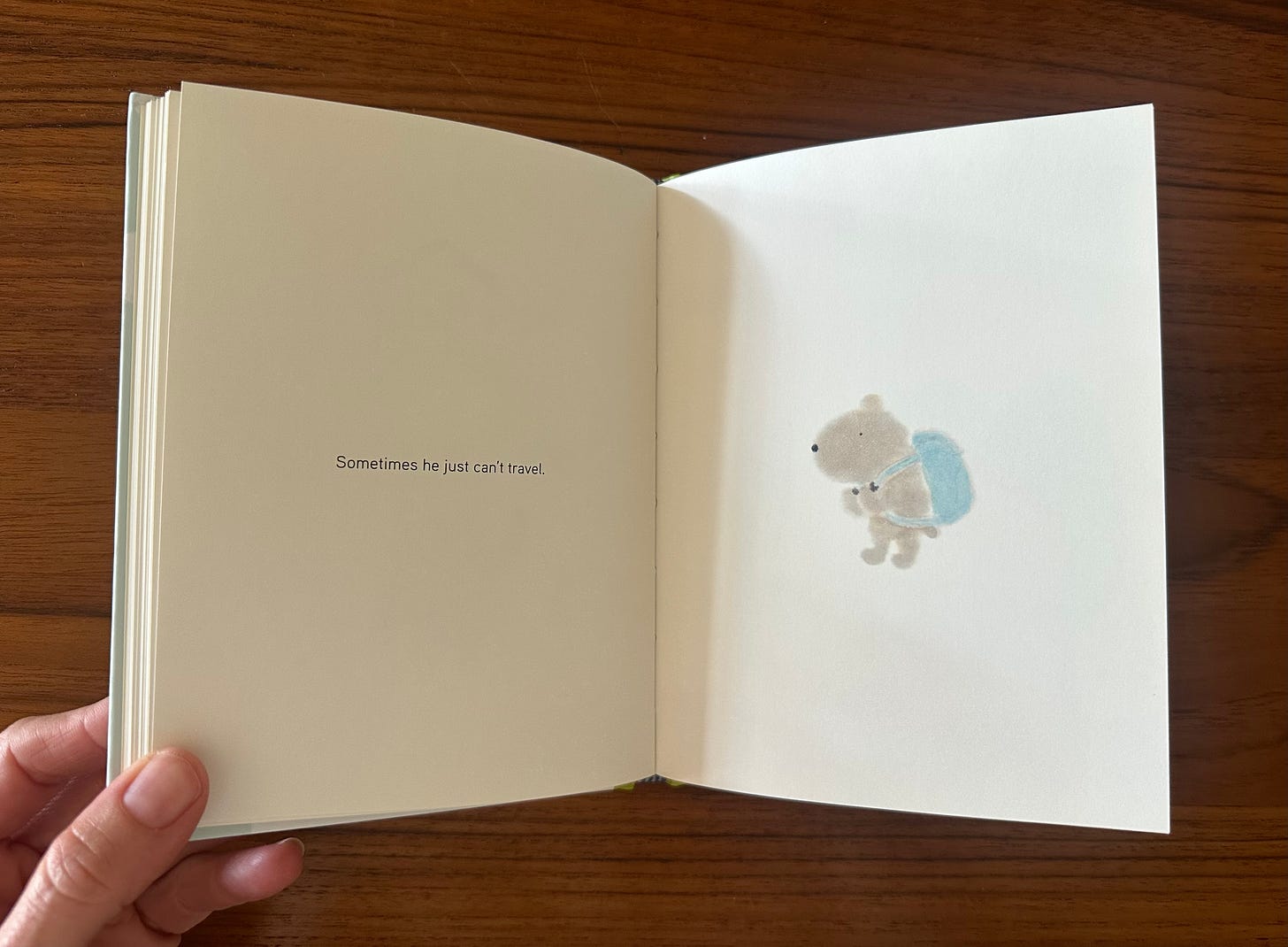
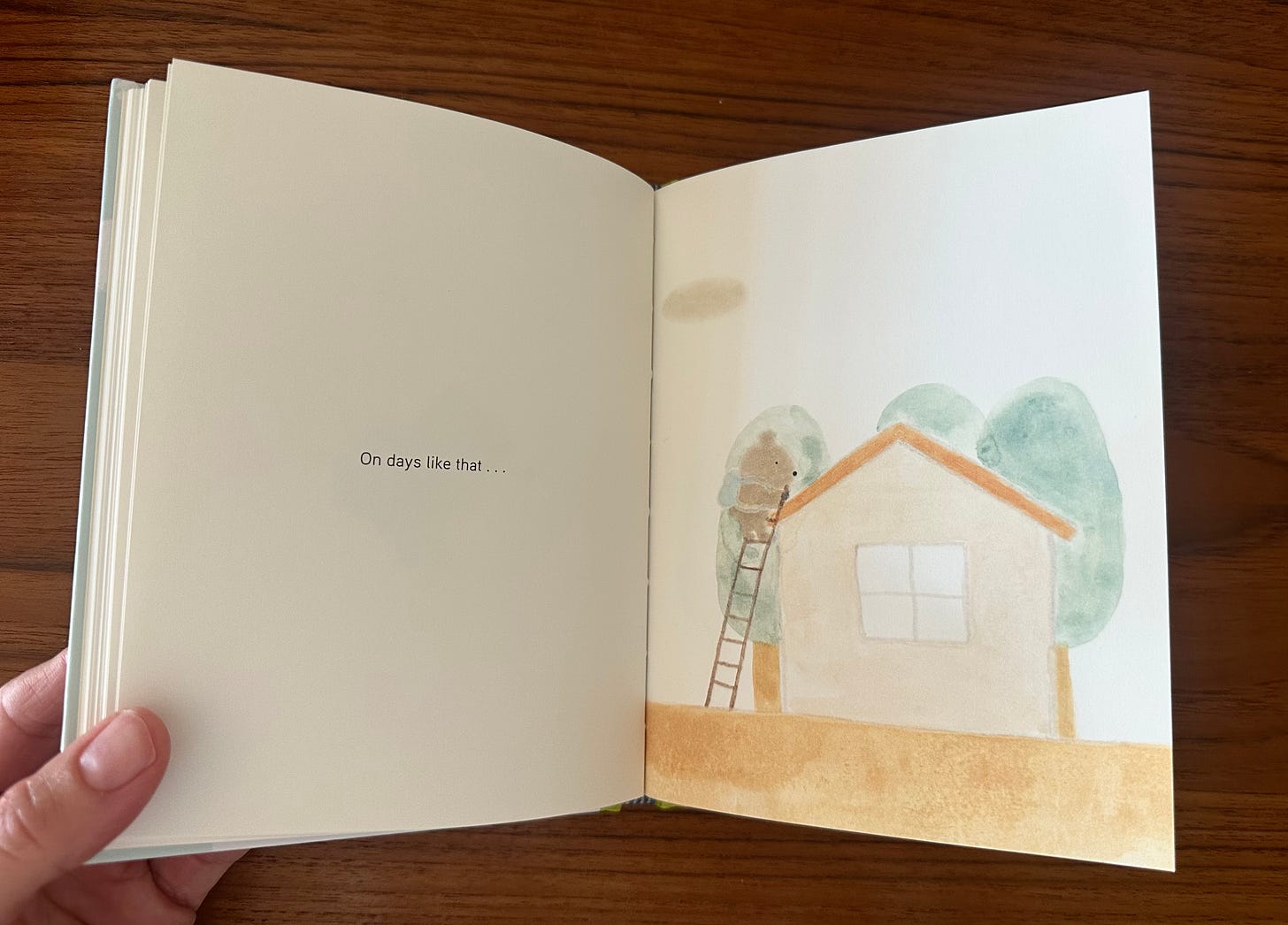
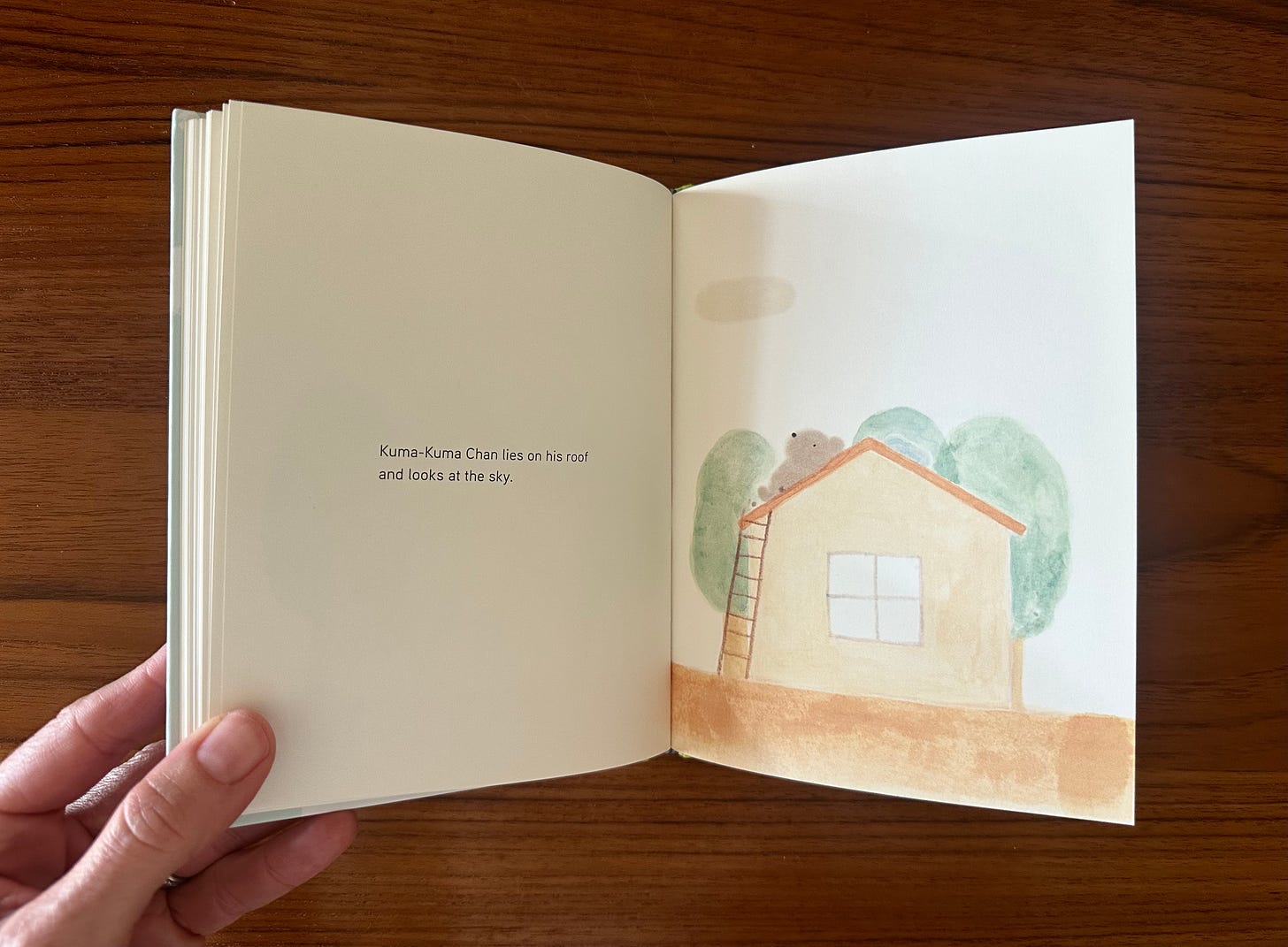
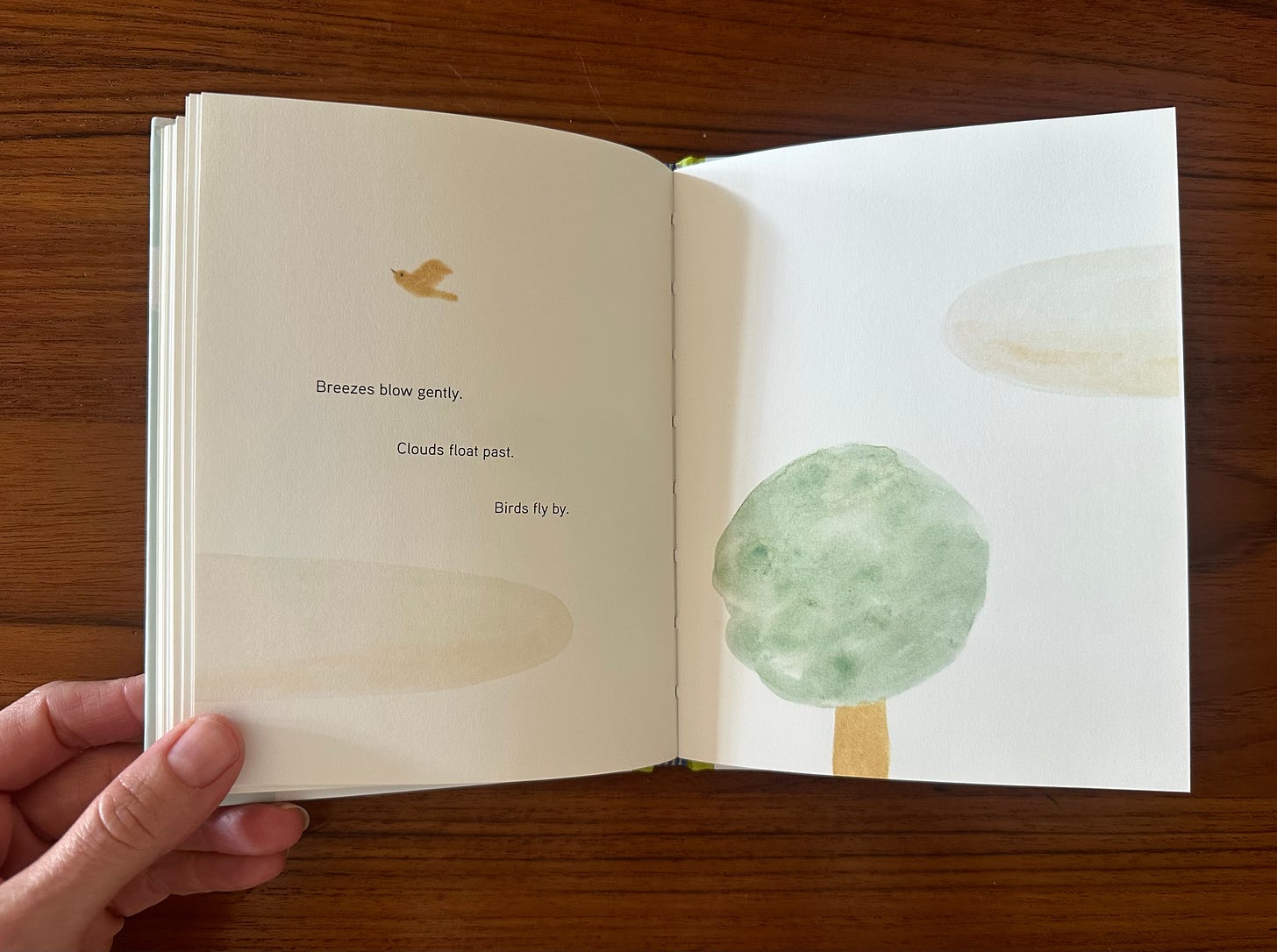
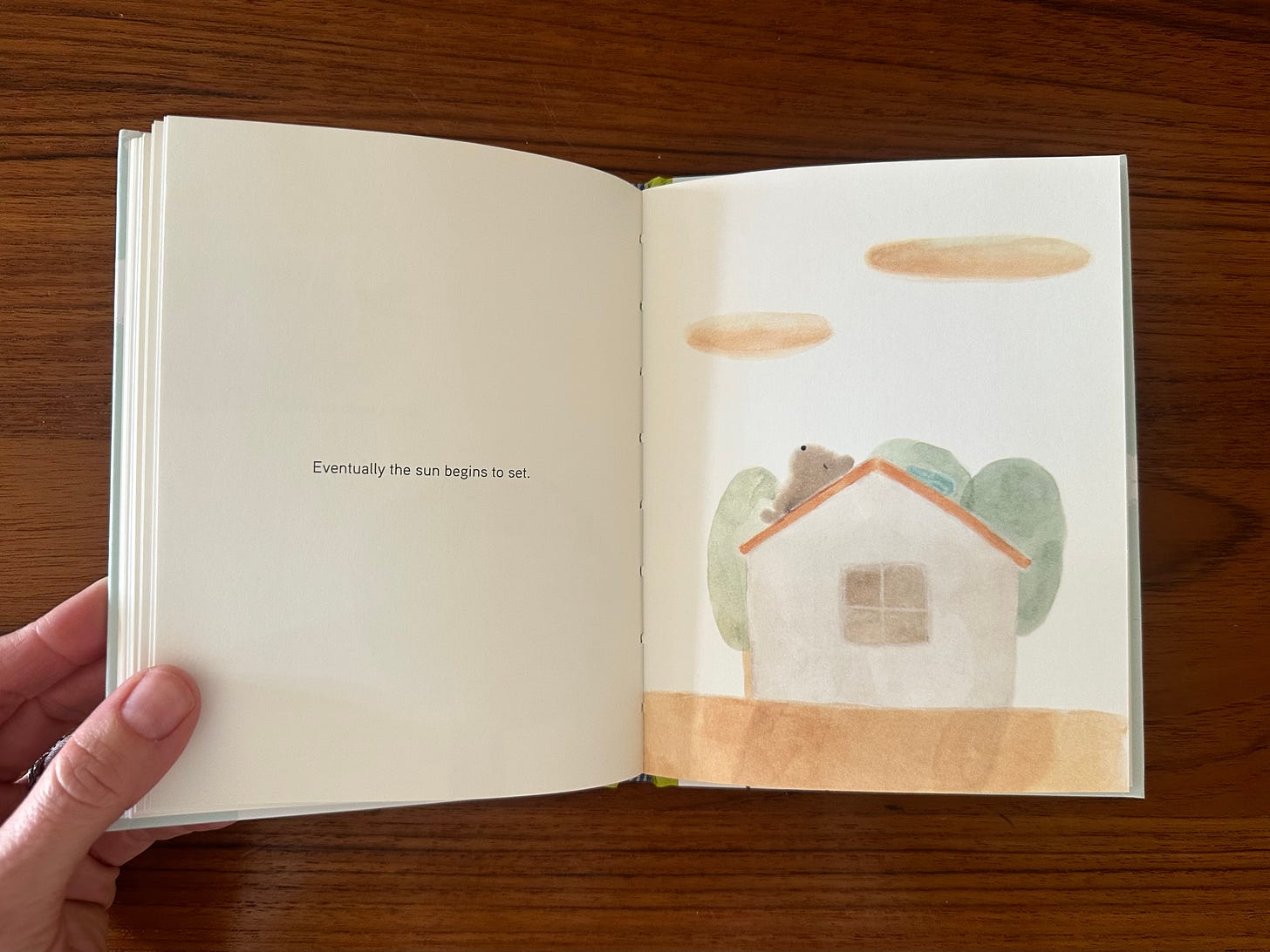



Oh Taylor, how do you always seem to know what I need to read? Thanks for this gift! When I start feeling like my ideas and stories are frivolous and small in a world so big and scary, I will remind myself imagination is a NECESSITY ♥️ We definitely need more pathways to love right now.
Thank you for this post, it was what I needed to hear today (and every day for the past, oh, forever or so, it seems like). I love the idea that finding a place comfort and calm provides an environment for finding courage. What a beautiful post!